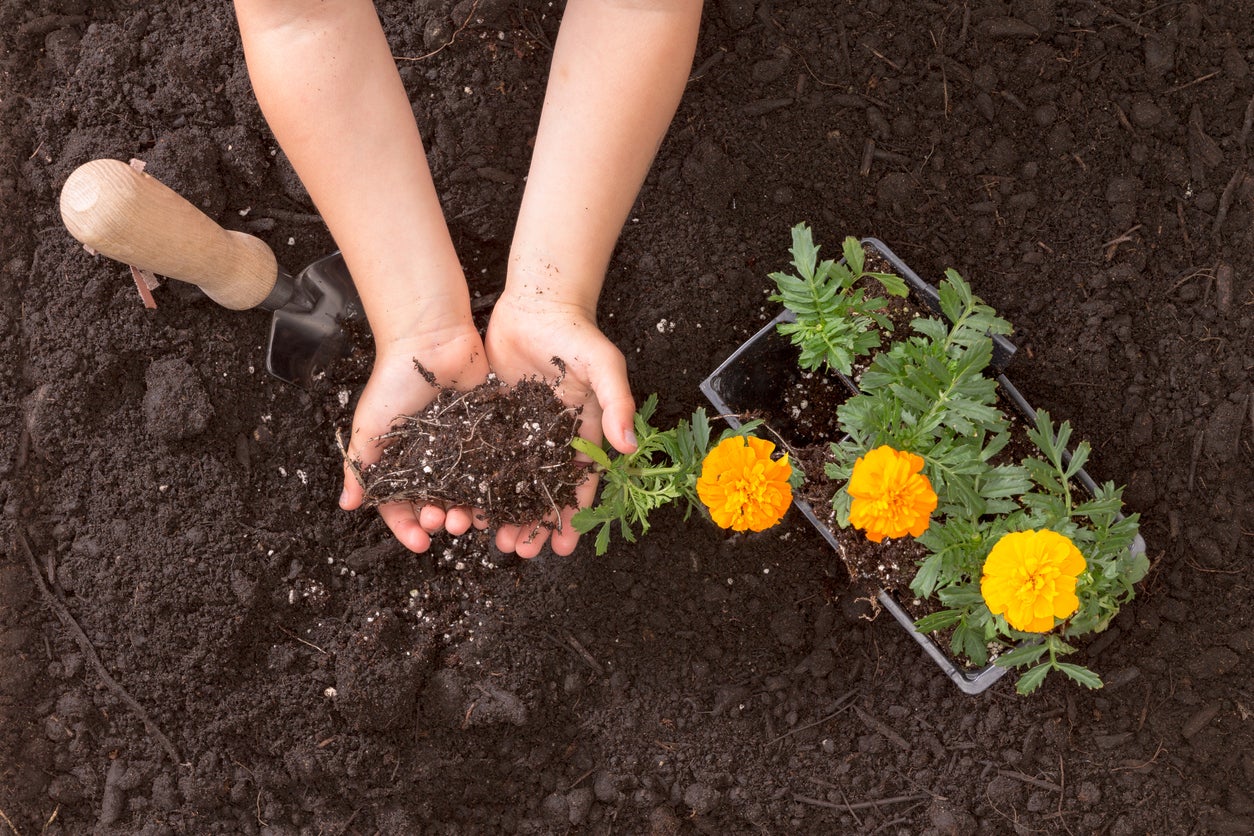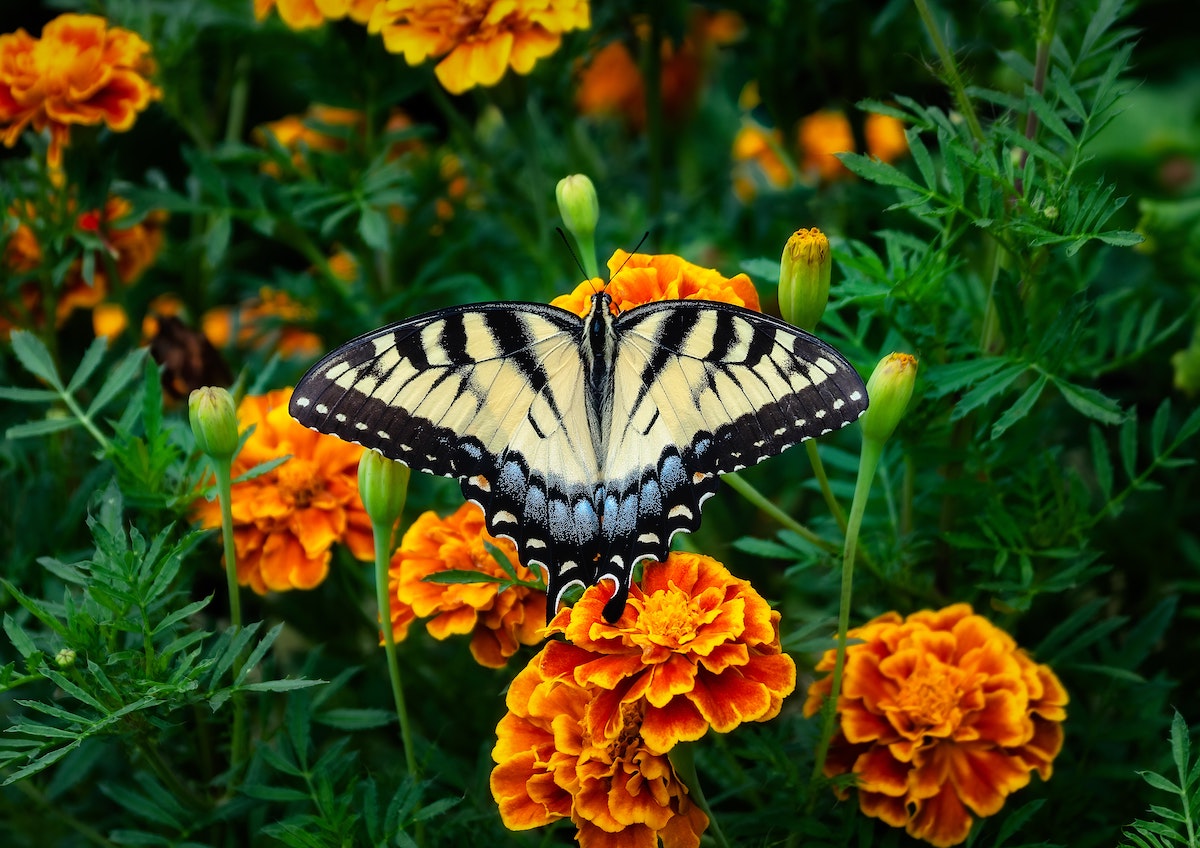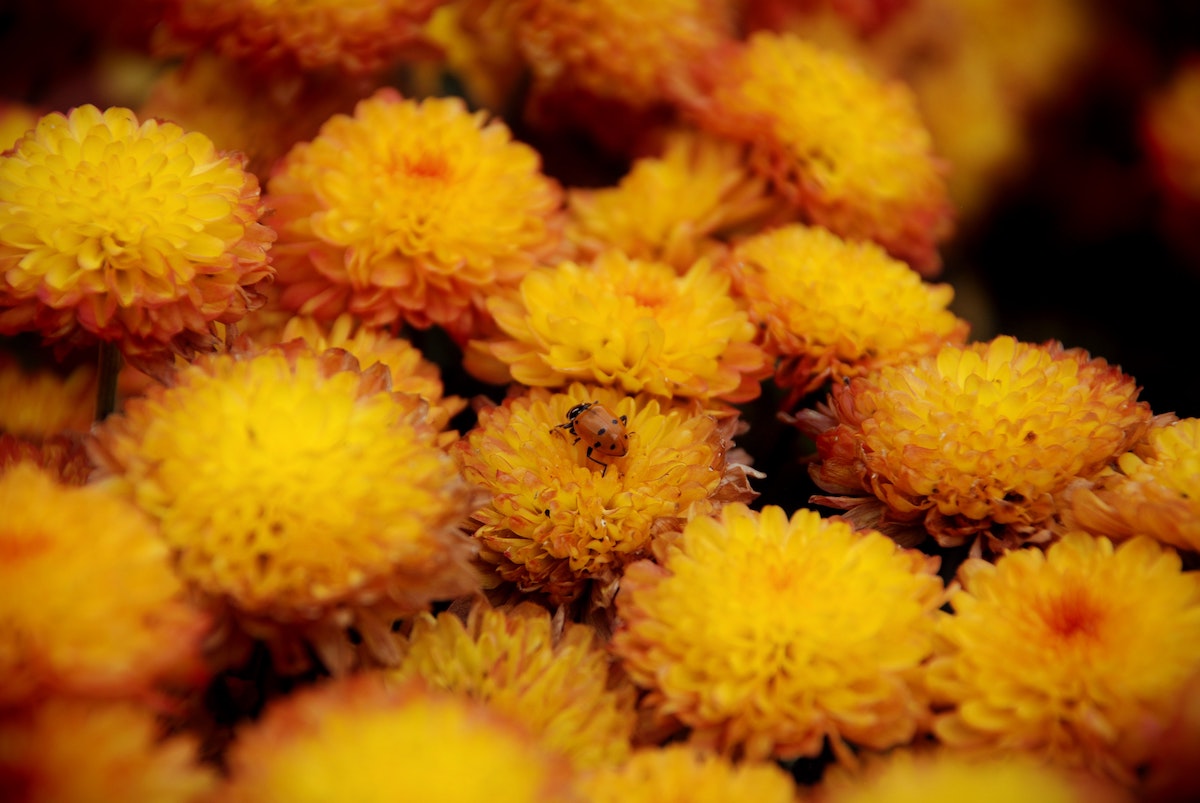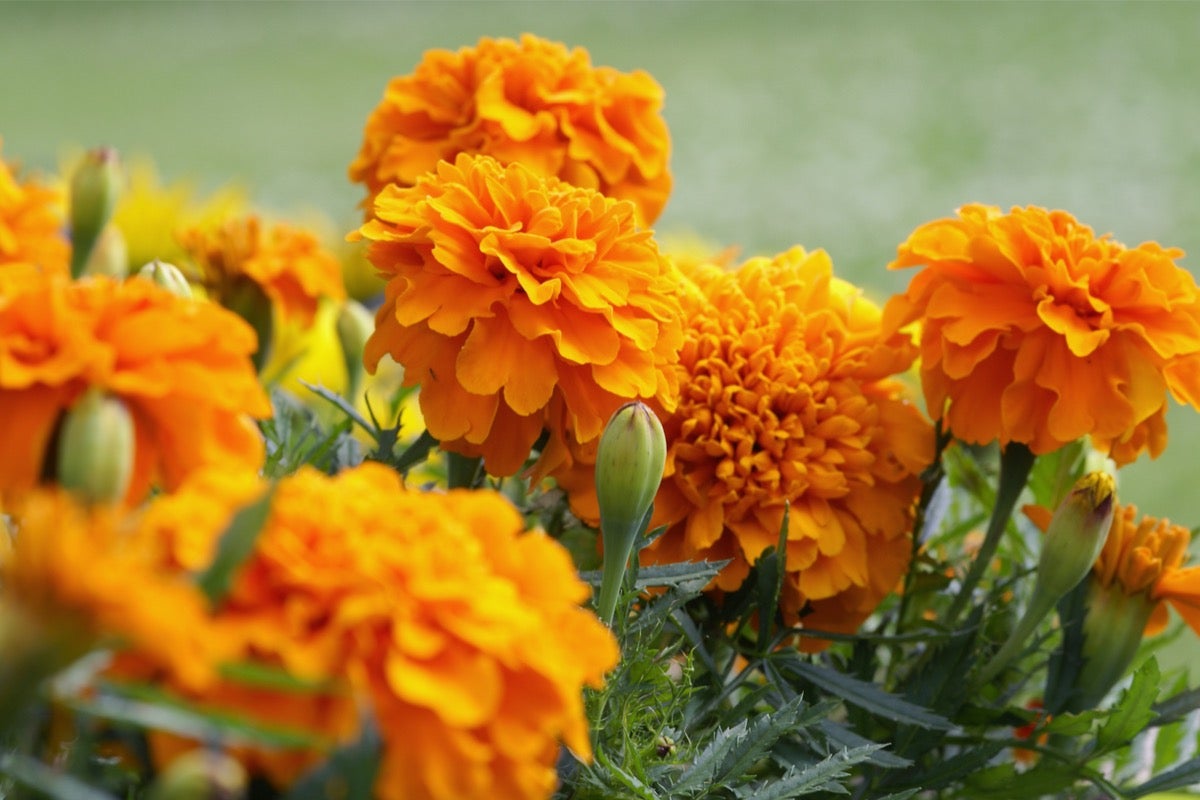We may earn revenue from the products available on this page and participate in affiliate programs. Learn More ›
Annual flowers are sometimes more trouble than they’re worth. Since the plants are going to die at the end of the season, is there really a point in bothering?
The answer is: Yes, especially if you choose the right annuals. Unfussy and uncomplicated, marigolds are the perfect garden companion. They’re well suited to ornamental landscaping, container growing, and even vegetable gardens (and the flowers of some varieties are edible). Marigolds are also available in many varieties and colors, and prefer full-sun conditions. These low-maintenance flowers don’t need much looking after, either. Here are a few other persuasive reasons why marigold deserve a permanent spot in your garden.
1. Marigolds are super hardy.
Annual flowers can be tricky to grow because they typically require a lot of attention, including frequent watering. Most marigold varieties, however, are drought tolerant—you won’t have to fret about your flower patch when a heat wave rolls in. Once established, the hardy flowers can handle temperature fluctuations and tend to bloom well into the fall. They are often the last variety to die off at the end of the gardening season.
Unlike other ornamentals that require gardeners to source bulbs or stratify seeds, marigolds are easy to grow from seed. Some marigold varieties also readily self-seed, so you can enjoy a new crop of flowers in the spring without putting in much work. If you want to prevent your marigold flowers from self-seeding, deadhead the plants before they have the chance to spread their seed.
Marigolds also grow well in containers, so you can enjoy gorgeous, colorful ornamentals whether you have a large garden plot or a few containers on a balcony.

2. They attract pollinators.
Pollinators like bees and butterflies are vital to our ecosystems. Choosing to plant flowers like marigolds ensures nearby pollinators have a readily available food source. If you’re a vegetable gardener, pollinators are essential for growing edibles like squash and tomatoes.
Keep in mind that pollinators prefer food that’s within easy reach. When selecting marigolds for a pollinator garden, opt for varieties with open centers such as:
- Bambino
- Golden Guardian
- Legion of Honor
- Lemon Gems
Like the look of pom-pom, double ruffled, and open center flowers? Plant different marigold varieties in an assortment of colors for a bloom-filled landscape or container garden.

3. Marigolds deter some pests.
While many gardeners believe that planting marigolds can help repel unpleasant, plant-munching insects, research suggests marigolds may not be that great at sending away unwanted pests like cabbage worms after all.
However, one study from 2019 suggests that a strongly scented terpene contained in French marigold plants may help deter whiteflies from infesting nearby tomato plants. The pretty flowers also tend to attract beneficial insects, which may help control pest populations.
There’s also evidence that marigolds can help control nematode populations. Nematodes are soil-dwelling parasites that can impact plant growth, sometimes even killing off plants and lawns, so it’s not a bad idea to keep their numbers down.


